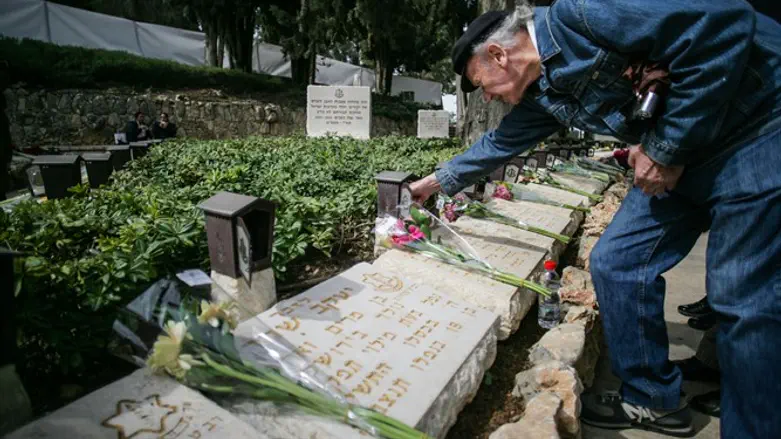
The IDF recently issued an updated General Staff order ("38.0116 - military funeral ceremony or tombstone unveiling ceremony"), according to which military funeral ceremonies may be held without religious symbols, at the choice of the family, both in military and civilian cemeteries.
The updated order was published following demands of the Hidush - Religious Freedom and Equality association from the military authorities, and following a court petition filed by the organization.
Until the order was amended, it was possible to bury in military cemeteries in a religious ceremony only (Orthodox Jewish or according to the religion of the dead soldier).
Families who wished to hold a secular burial were not permitted to do so in a military cemetery, and in such a case the burial ceremony would be held without ceremonial military honor symbols, such as bearing the coffin, ceremonial wreaths, honor guards, and official eulogies.
The new ordinance states for the first time that "during the funeral procession, immediate family is permitted to choose whether it wishes to maintain the religious characteristics of the funeral ceremony," which include reading verses, psalms, the Kel maleh Rachamim prayer, and the "request for forgiveness by a rabbi and a military cantor, as well as recitation of Kaddish.
"We welcome the important step taken by the military authorities in response to our demands and the progress towards religious freedom in the IDF," said Attorney Uri Regev, director of the Hadash organization. The new order represents a real revolution in such a sensitive area, which for decades has been under the control of the Orthodox military rabbinate, with no justification.
"As we argued before the IDF and the Defense Ministry, in the Jewish and democratic State of Israel, there is no justification for halting the principle of religious freedom at the gates of army camps and military cemeteries.Unfortunately, however, the army has stopped halfway, without allowing proper alternatives in a secular or religious non-Orthodox funeral ceremony, and describes every change as an exception requiring the approval of the senior officers or the military rabbinate.We will not accept the continued insult, and therefore we reject the Military Advocate General's argument that the amendments introduced provide a 'full response' to our demands, and we will demand a continued hearing on the petition."